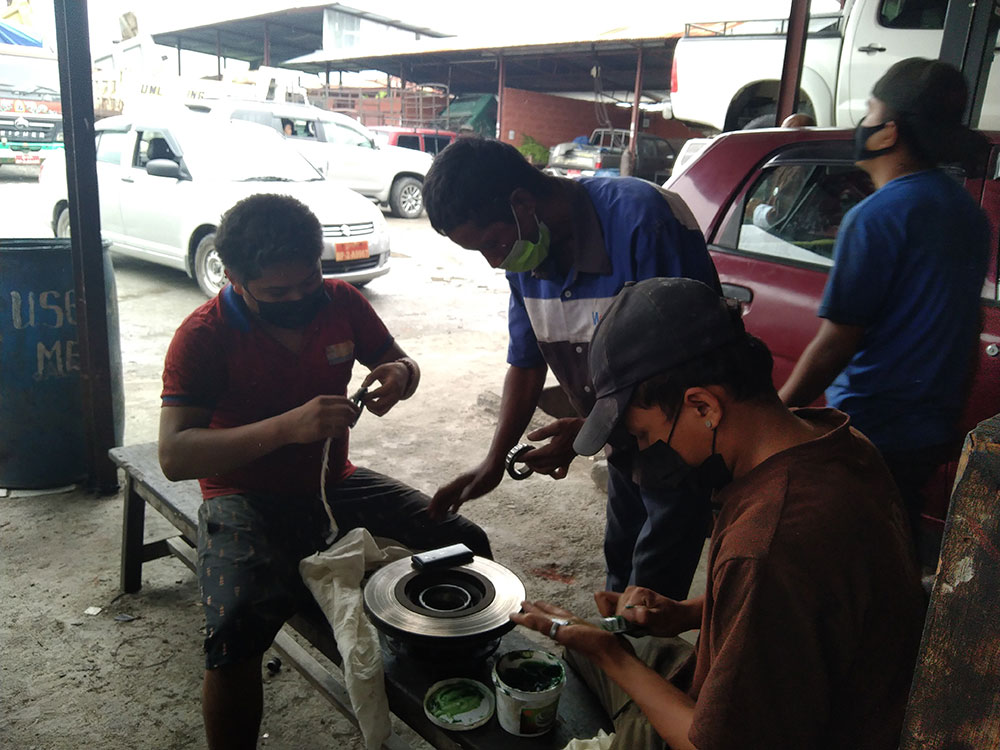Nima | Gelephu
Although the Cabinet approved the Technical and Vocational and Educational Training (TVET) reform plan in August of this year, developmental challenges on the ground remained the same, according to private sector representatives and officials involved in business development in Sarpang.
They said TVET graduates are awaiting vacancies in government agencies while working at private firms with fewer safety measures.
Private sector representatives also claimed TVET graduates lack the skills to work with advanced machinery.
They said the equipment and technology used in TVET institutions are out of date.
Private sector representative to the dzongkhag Covid-19 taskforce, Dawa Penjore, said that the government should go beyond policy interventions when it comes to TVET reforms.
He said collaboration with the private sector is the way forward. “Most TVET graduates are employed in government agencies and the policy interventions are focused on the government side. This has not benefited the private sector.”
He also said that there has been exponential growth in the private sector, driven by outcome and profit motives. “The growth in government is linear. Technological advancement is fast in the private sector, whereas the institutes use older technology. This is a big mismatch.”
The number of workshops and industries increased in Gelephu after the workshop owners were relocated to the Industrial Service Centre (ISC) in Trashiling. The workshops faced a shortage of manpower. There are only two or three fully manned workshops at ISC today.
“We’ve been trying to employ TVET graduates, but they are not interested,” said Dawa Penjore. The business communities in Gelephu say that the government should look forward to providing incentives to the TVET graduates who choose to work in the private sector.
They also said institutes should collaborate with private firms for training courses.
“The instructors at the TVET institutes lack work experience. They should deploy people with good experience on a contract basis for practical lessons. This is where the private sector can come in,” he said.
Workshop owners said that the government should incentivise private firms employing trainees to stop them from employing cheap foreign labourers who are more skilled than the local counterparts.
Officials from Bhutan Chamber for Commerce and Industry (BCCI) in Gelephu said that the on-the-job training at private firms was never taken seriously. “They should allow the employers to assist the trainees. This would help them learn,” an official said.
Sources said that workshops are operated on a commission basis between the foreign worker and owner. “It is high time that technically learned people seize the opportunities in the sector.”
The training director at Jigme Wangchuck Power Training Institute (JWPTI) in Jigmeling, Pelden Tshering, said that it was challenging to keep up with market-driven changes to equipment and learning materials.
“Our curriculums are revised every three to five years. Technical training institutes depend on the government budget for the equipment and it takes time. Sometimes we have the latest technology and they don’t. These things are not recognised,” he said.
He said that the trainees should be able to handle any machinery and equipment once they have learned the basics.
“We have been asking the private sector to donate equipment and tools used in the market but they were not forthcoming. They are the end-users and they should engage. It is difficult to change the equipment constantly,” said Pelden Tshering.
A way forward
Pelden Tshering said that JWPTI started a dual training programme where the training happens at the institute and in the companies. “The trainees learn practical lessons with private firms and theory at the institute,” he said.
The first batch of 27 trainees from JWPTI completed their training recently. They were trained in carpentry and masonry.
“They will be able to use whatever equipment is in the market. Things missed in the companies are taught in the institute. We are collaborating with big companies for this dual system training,” said Pelden Tshering.
The new system is also expected to provide more practice time for the trainees. Earlier, the practical lessons for the TVET graduates lasted not more than three months which took place mostly during job training.
“The owners don’t take good care of the trainees, as they don’t have to pay them. Some fail to provide good accommodation,” the director said.
Surjash Monger, a TVET graduate working in a workshop in Gelephu, said that currently, most work is done manually. “We were trained to operate a mechanised working system. The tools are different and we have not been able to work as expected,” he said.
He added that better incentives and bonuses in the private sector could attract more TVET trainees to work with private firms. “The institutes have started using the latest machines and equipment for training now.”
Edited by Tashi Dema


